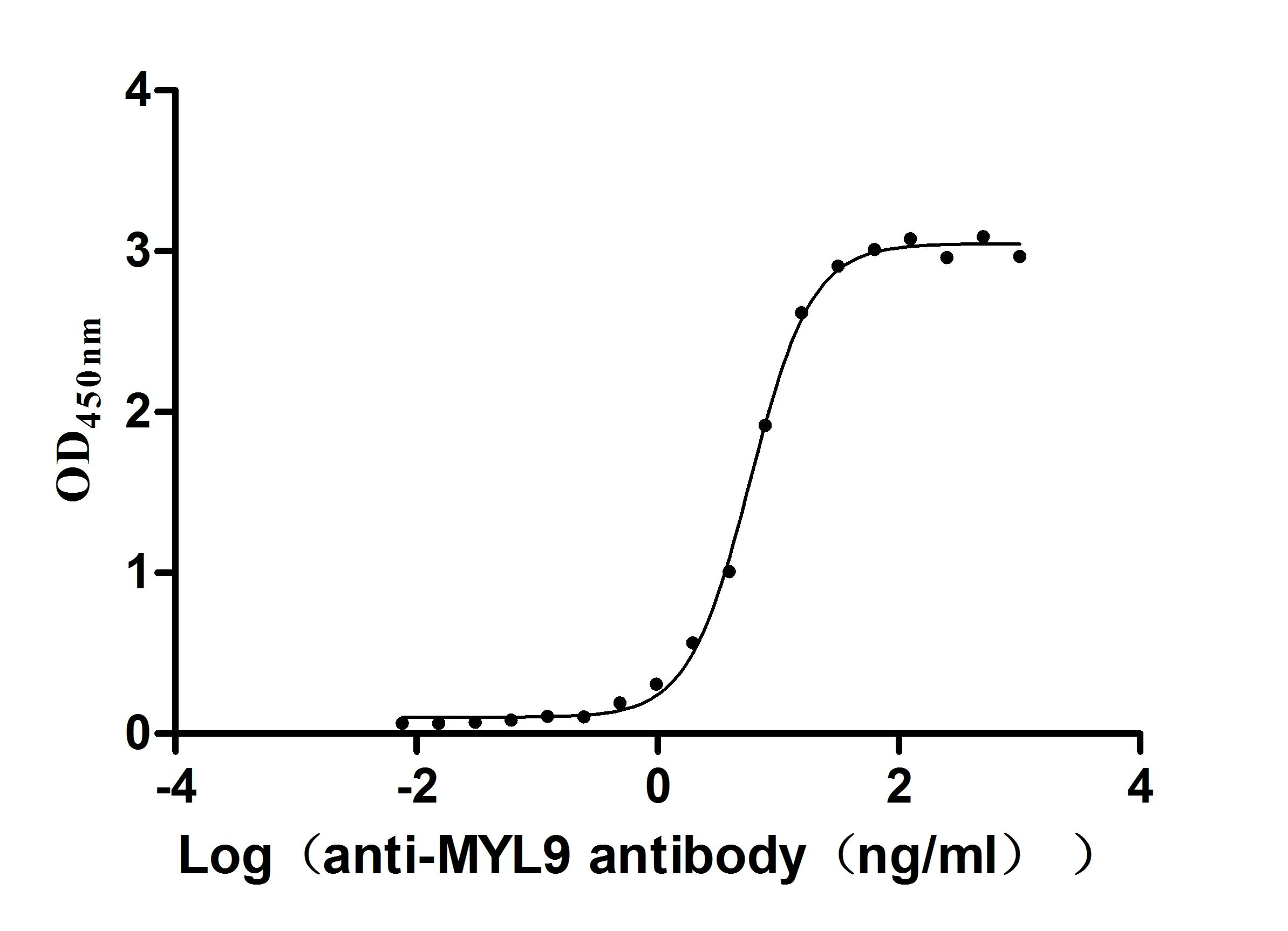Recombinant Mouse Aggrecan core protein (Acan), partial
-
中文名称:Recombinant Mouse Aggrecan core protein(Acan) ,partial
-
货号:CSB-YP733779MO
-
规格:
-
来源:Yeast
-
其他:
-
中文名称:Recombinant Mouse Aggrecan core protein(Acan) ,partial
-
货号:CSB-EP733779MO
-
规格:
-
来源:E.coli
-
其他:
-
中文名称:Recombinant Mouse Aggrecan core protein(Acan) ,partial
-
货号:CSB-EP733779MO-B
-
规格:
-
来源:E.coli
-
共轭:Avi-tag Biotinylated
E. coli biotin ligase (BirA) is highly specific in covalently attaching biotin to the 15 amino acid AviTag peptide. This recombinant protein was biotinylated in vivo by AviTag-BirA technology, which method is BriA catalyzes amide linkage between the biotin and the specific lysine of the AviTag.
-
其他:
-
中文名称:Recombinant Mouse Aggrecan core protein(Acan) ,partial
-
货号:CSB-BP733779MO
-
规格:
-
来源:Baculovirus
-
其他:
-
中文名称:Recombinant Mouse Aggrecan core protein(Acan) ,partial
-
货号:CSB-MP733779MO
-
规格:
-
来源:Mammalian cell
-
其他:
产品详情
-
纯度:>85% (SDS-PAGE)
-
基因名:
-
Uniprot No.:
-
别名:Acan; Agc; Agc1; Aggrecan core protein; Cartilage-specific proteoglycan core protein; CSPCP
-
种属:Mus musculus (Mouse)
-
蛋白长度:Partial
-
蛋白标签:Tag type will be determined during the manufacturing process.
The tag type will be determined during production process. If you have specified tag type, please tell us and we will develop the specified tag preferentially. -
产品提供形式:Lyophilized powder
Note: We will preferentially ship the format that we have in stock, however, if you have any special requirement for the format, please remark your requirement when placing the order, we will prepare according to your demand. -
复溶:We recommend that this vial be briefly centrifuged prior to opening to bring the contents to the bottom. Please reconstitute protein in deionized sterile water to a concentration of 0.1-1.0 mg/mL.We recommend to add 5-50% of glycerol (final concentration) and aliquot for long-term storage at -20℃/-80℃. Our default final concentration of glycerol is 50%. Customers could use it as reference.
-
储存条件:Store at -20°C/-80°C upon receipt, aliquoting is necessary for mutiple use. Avoid repeated freeze-thaw cycles.
-
保质期:The shelf life is related to many factors, storage state, buffer ingredients, storage temperature and the stability of the protein itself.
Generally, the shelf life of liquid form is 6 months at -20°C/-80°C. The shelf life of lyophilized form is 12 months at -20°C/-80°C. -
货期:Delivery time may differ from different purchasing way or location, please kindly consult your local distributors for specific delivery time.Note: All of our proteins are default shipped with normal blue ice packs, if you request to ship with dry ice, please communicate with us in advance and extra fees will be charged.
-
注意事项:Repeated freezing and thawing is not recommended. Store working aliquots at 4°C for up to one week.
-
Datasheet :Please contact us to get it.
靶点详情
-
功能:This proteoglycan is a major component of extracellular matrix of cartilagenous tissues. A major function of this protein is to resist compression in cartilage. It binds avidly to hyaluronic acid via an N-terminal globular region. May play a regulatory role in the matrix assembly of the cartilage.
-
基因功能参考文献:
- Overexpression of Dlx2 enhances early chondrocyte differentiation by increasing accumulation of Col2alpha1, type II collagen and aggrecan, but interferes later stages of chondrocyte differentiation through inhibiting MMP13 expression. PMID: 29787757
- Kartogenin effectively increased the expression of Col II and aggrecan in hNPCs and slowed the degeneration of intervertebral discs stimulated by IL-1b and TNF-a PMID: 29207013
- Acan mRNA and protein was reduced by 50% in AgcCre/Cre mouse model of dwarfism. Analysis of gene expression indicates impaired differentiation of chondrocyte in hyaline cartilage of AgcCre/Cre mice. PMID: 28921880
- As the primary site of agc1-deficiency is neuronal, this explains the lack of accumulation of brain lactate in agc1-deficiency in humans and mice. PMID: 28429368
- Aggrecan has a major role in regulating the expression of key growth factors and signaling molecules during development of cartilaginous tissue and is essential for proper chondrocyte organization, morphology, and survival. PMID: 25446537
- Aggrecan, link protein and TN-R were identified to be essential for the neuroprotective properties of the perineuronal net. PMID: 24625978
- the subsequent presentation of aggregan from ECM leads to CD4(+) T-cell activation and effector cell formation. PMID: 24032649
- Runx3 positively regulates aggrecan expression and suggest that its function is more limited to cartilage development than to bone. PMID: 23625810
- The role of ADAMTS5 in tendon is to remove pericellular and interfibrillar aggrecan to maintain the molecular architecture responsible for normal tissue function. PMID: 21928430
- role of ADAMTS5 in dermal repair through CD44-mediated aggrecan accumulation and modulation of transforming growth factor beta1 (TGFbeta1) signaling PMID: 21566131
- CSGalNAcT-1 is necessary for normal levels of endochondral ossification, and the decrease in CS amount in the growth plate by its absence causes a rapid catabolism of aggrecan. PMID: 21148564
- Data show that strong aggrecan gene expression was observed in growth plate and articular cartilage as well as the fibrocartilage of meniscus, trachea, and intervertebral disc. PMID: 19830818
- A remote upstream element regulates tissue-specific expression of the rat aggrecan gene PMID: 11834732
- the aggrecan promoter has an osteogenic protein-1 responsive element PMID: 15351725
- A few T-cell epitopes of the core protein of cartilage proteoglycan (PG) were clearly recognized by T cells in PG-immunized arthritic animals PMID: 16185673
- the aggrecan, hyaluronic acid and heparan sulphate proteoglycans perineuronal distribution coincided partially and this could be related to ECM functional properties PMID: 17349777
- Aggrecan plays an important role in the activity-dependent formation of the perineuronal net during the critical period of development. PMID: 17507562
- These results suggest that high levels of serum IL-18 promote the overexpression of endogenous IL-18 in articular chondrocytes, resulting in cartilage loss through suppression of aggrecan synthesis. PMID: 18374640
- This study uncovers critical cis-acting elements and transcription factors driving Agc1 expression in cartilage and increases understanding of the mode of action of the chondrogenic Sox trio. PMID: 18559420
- Results show that in Smad3 gene knock-out mice the protein positive staining of type II collagen, aggrecan, and TGF-beta1 in the disc decreased, while that of type X collagen increased. PMID: 19478656
显示更多
收起更多
-
相关疾病:Defects in Acan are the cause of cartilage matrix deficiency (CMD). CMD is an autosomal recessive syndrome characterized by cleft palate, short limbs, tail and snout. Mutation in strain CMD causes absence of aggrecan by truncation of the protein (mutation in the G1 domain).
-
亚细胞定位:Secreted, extracellular space, extracellular matrix.
-
蛋白家族:Aggrecan/versican proteoglycan family
-
组织特异性:Specifically expressed in cartilage tissues.
-
数据库链接:
Most popular with customers
-
Recombinant Human Tumor necrosis factor receptor superfamily member 14 (TNFRSF14), partial (Active)
Express system: Mammalian cell
Species: Homo sapiens (Human)
-
Recombinant Human B- and T-lymphocyte attenuator (BTLA), partial (Active)
Express system: Mammalian cell
Species: Homo sapiens (Human)
-
Recombinant Human Glypican-3 (GPC3) (G537R), partial (Active)
Express system: Mammalian cell
Species: Homo sapiens (Human)
-
Recombinant Human papillomavirus type 16 Protein E7 (E7) (Active)
Express system: E.coli
Species: Human papillomavirus type 16
-
Recombinant Human Prolactin receptor (PRLR), partial (Active)
Express system: Mammalian cell
Species: Homo sapiens (Human)
-
Recombinant Mouse Microtubule-associated protein tau (Mapt) (Active)
Express system: Mammalian cell
Species: Mus musculus (Mouse)
-
Recombinant Human Claudin-6 (CLDN6)-VLPs (Active)
Express system: Mammalian cell
Species: Homo sapiens (Human)
-
Recombinant Human Myosin regulatory light chain 12A (MYL12A) (Active)
Express system: E.coli
Species: Homo sapiens (Human)


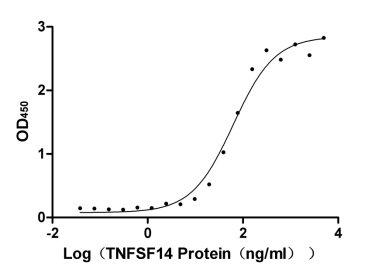
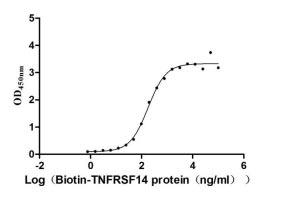
-AC1.jpg)
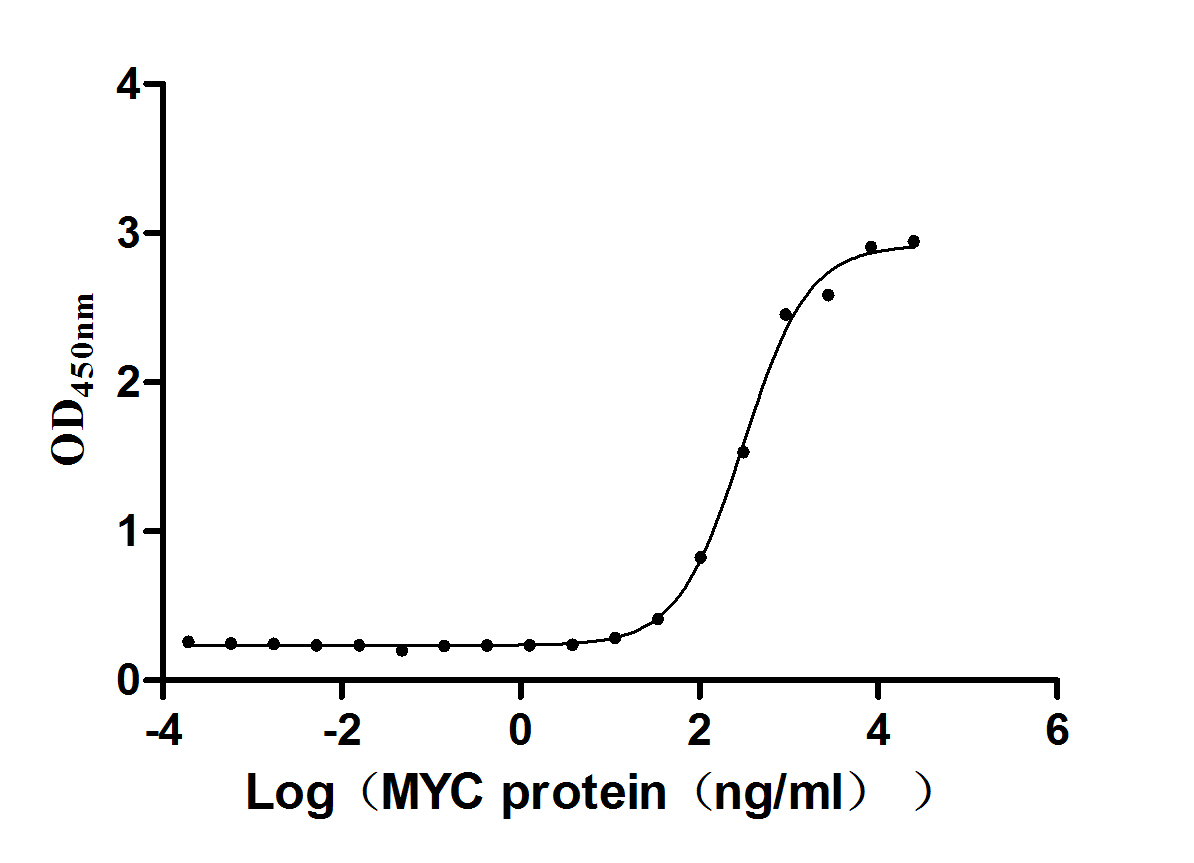
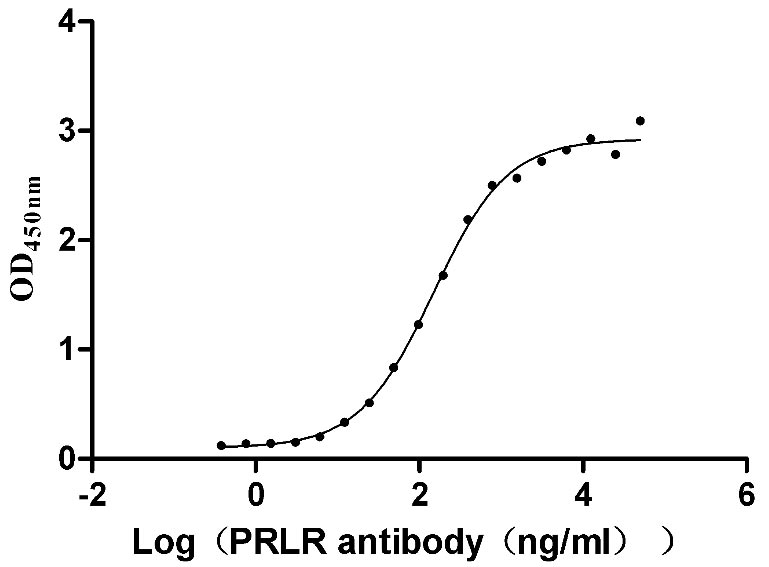
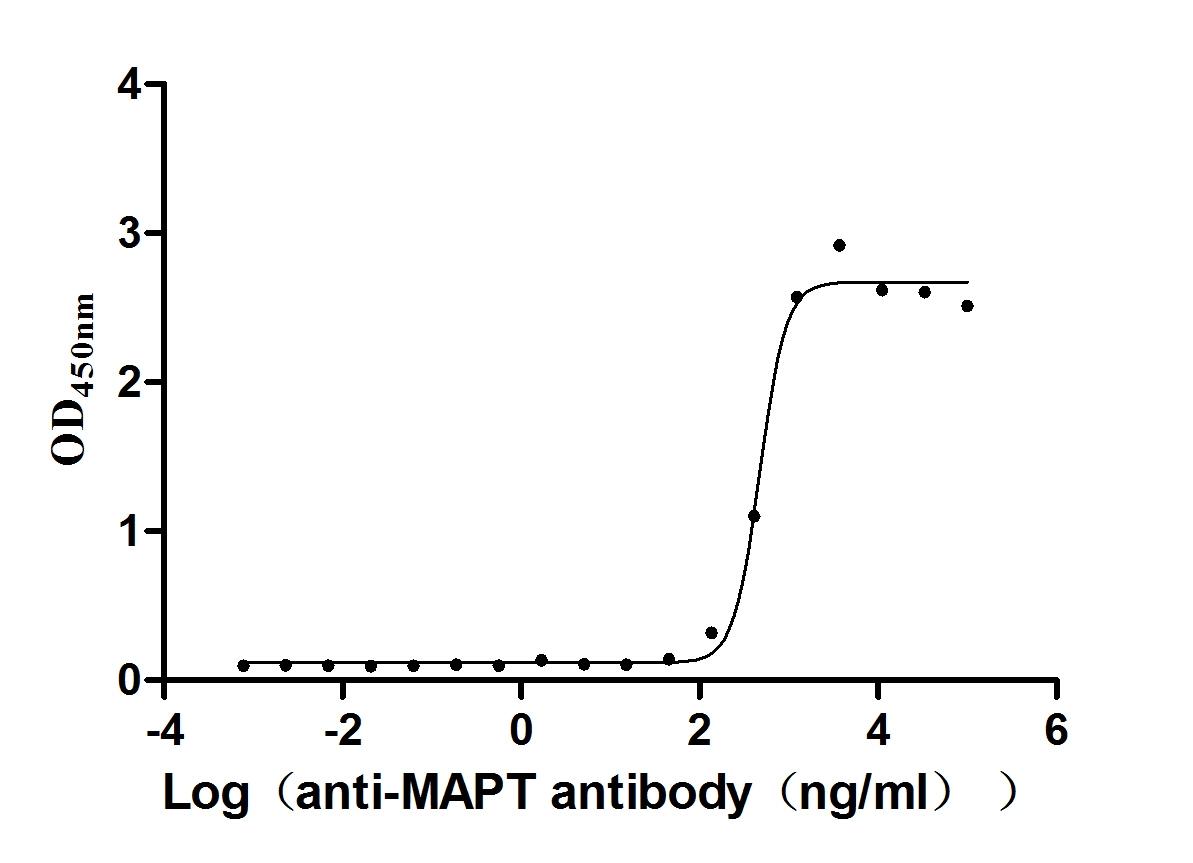
-AC1.jpg)
